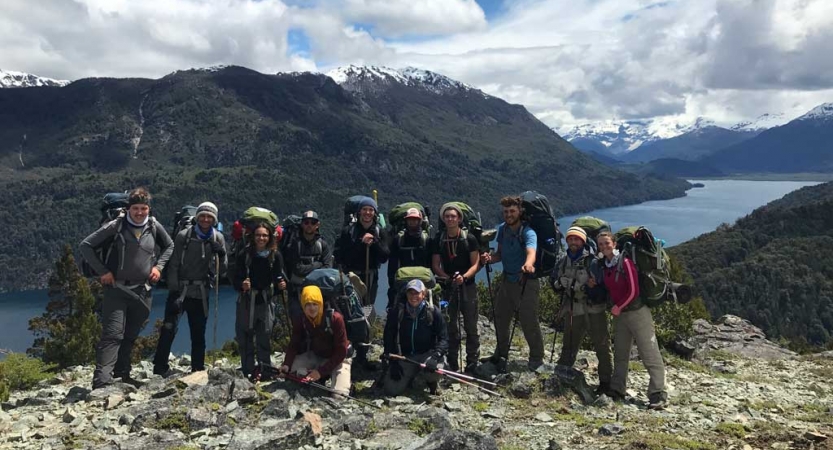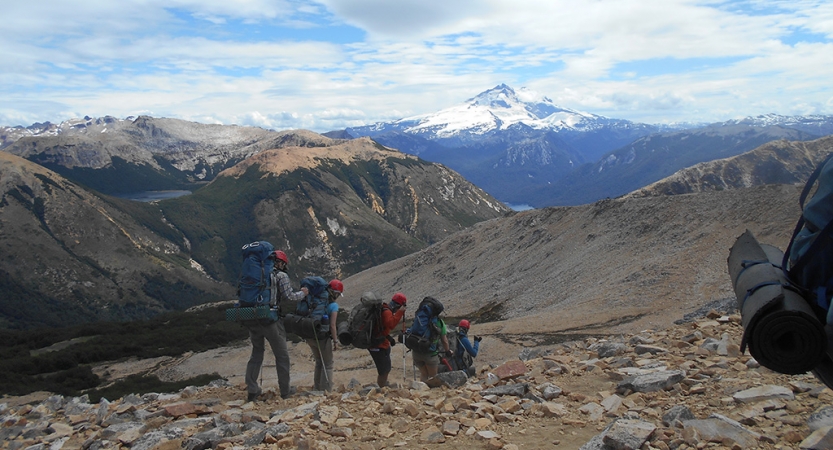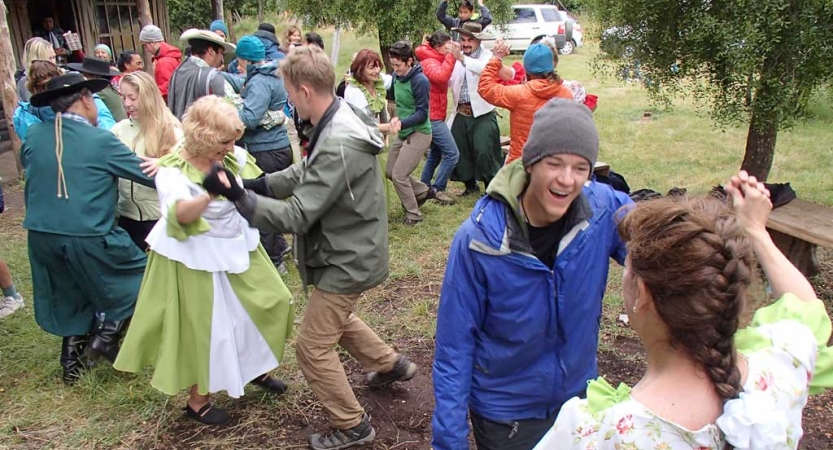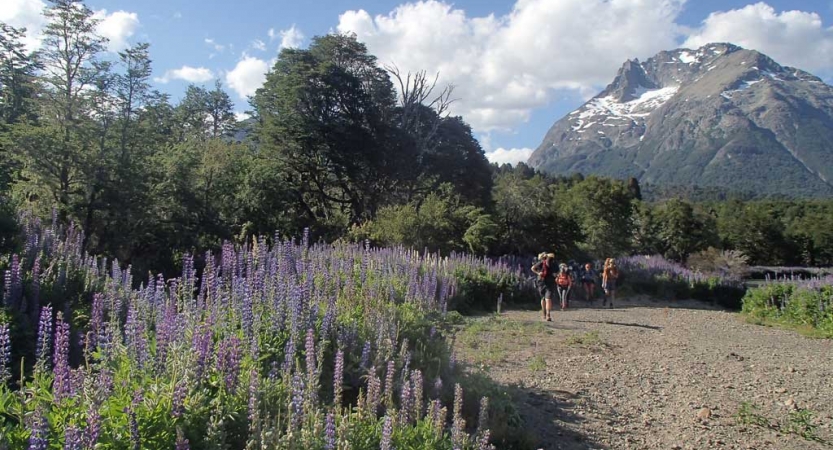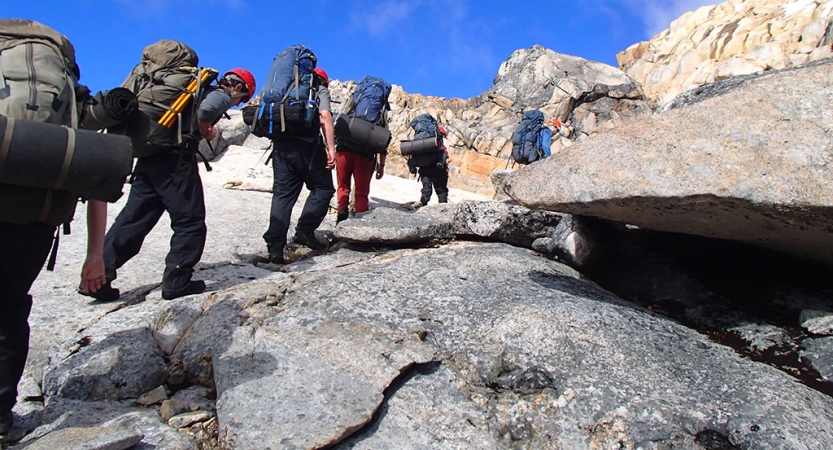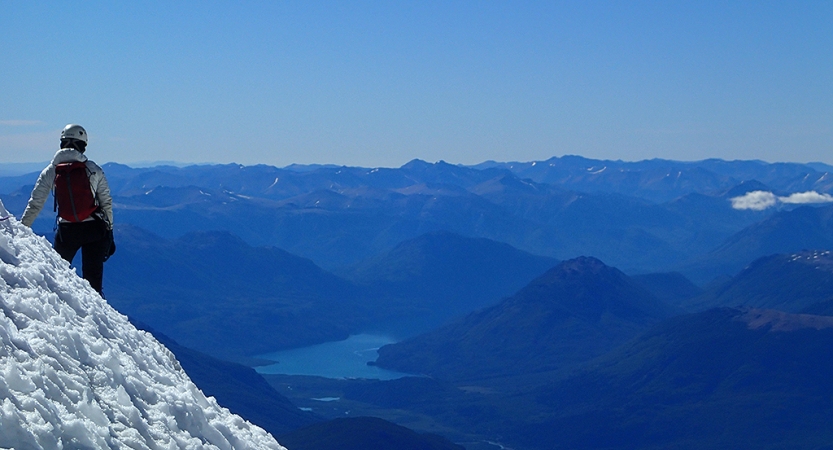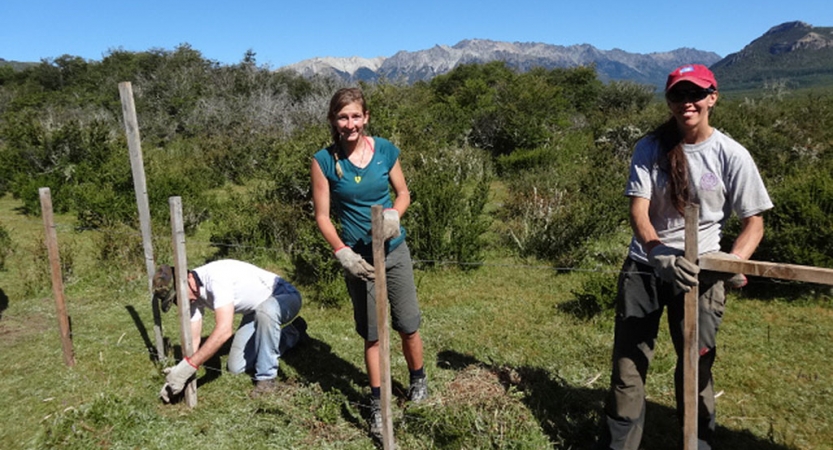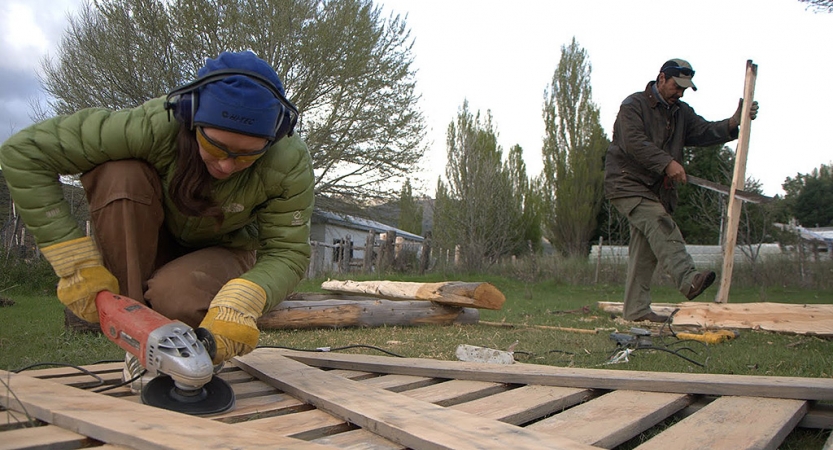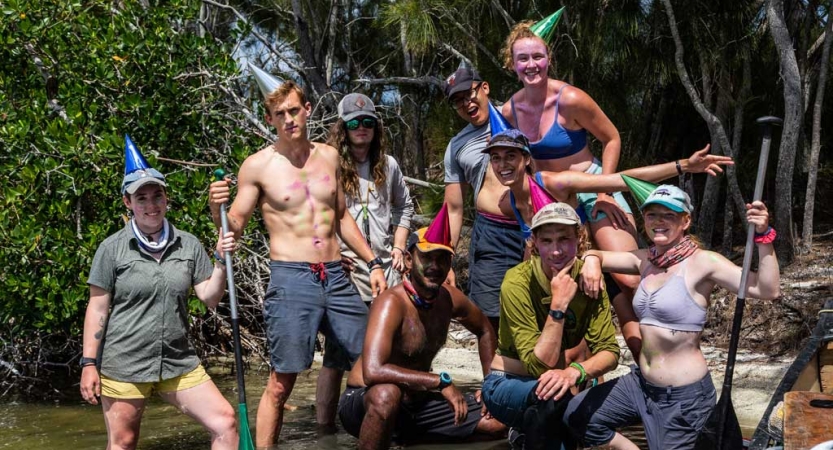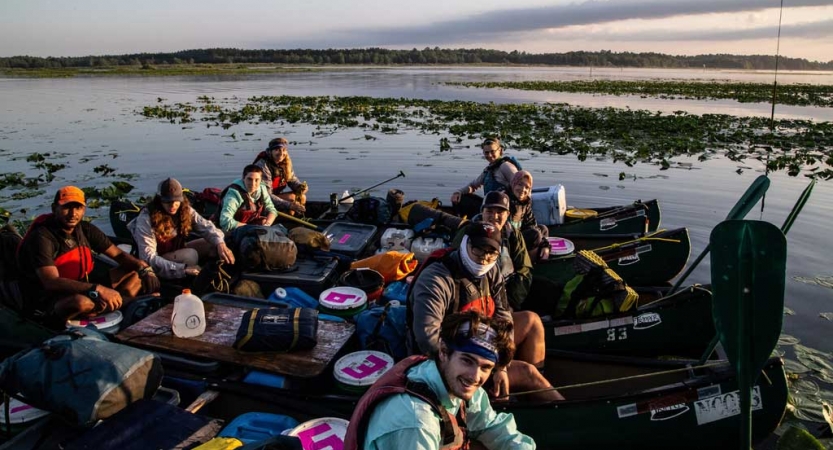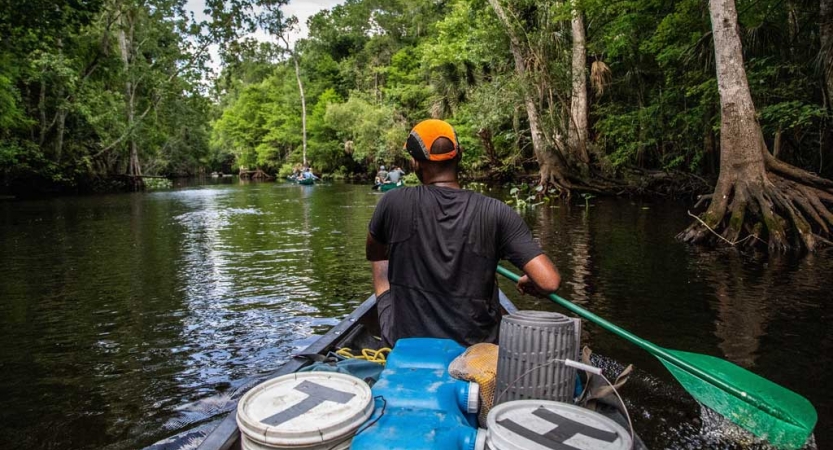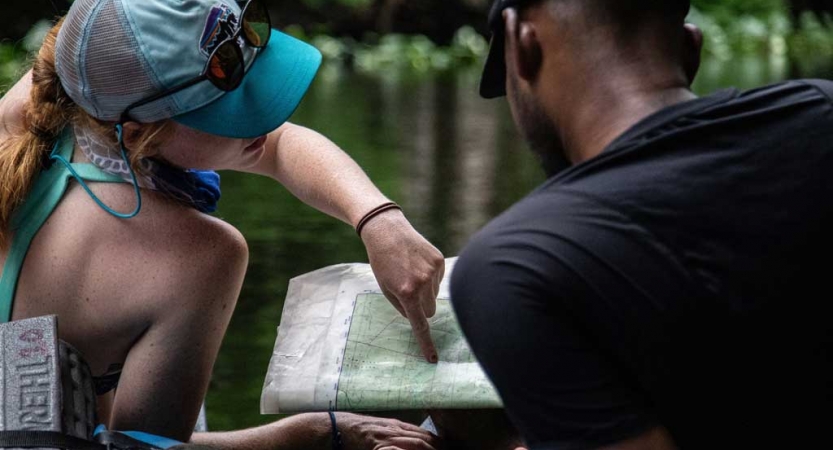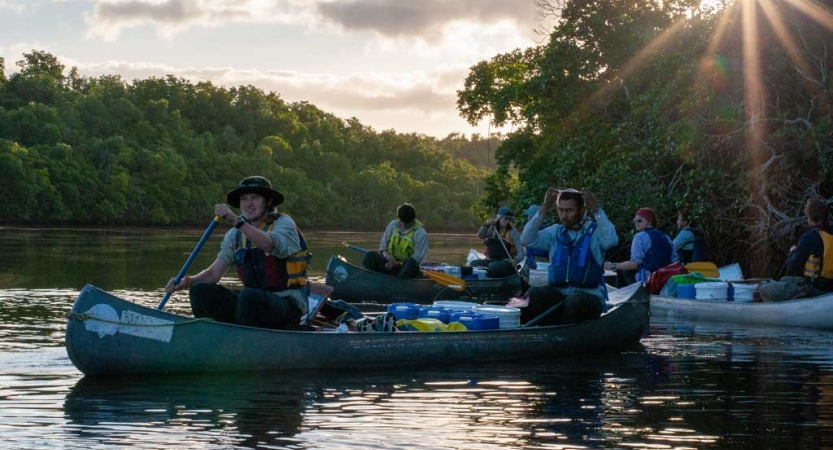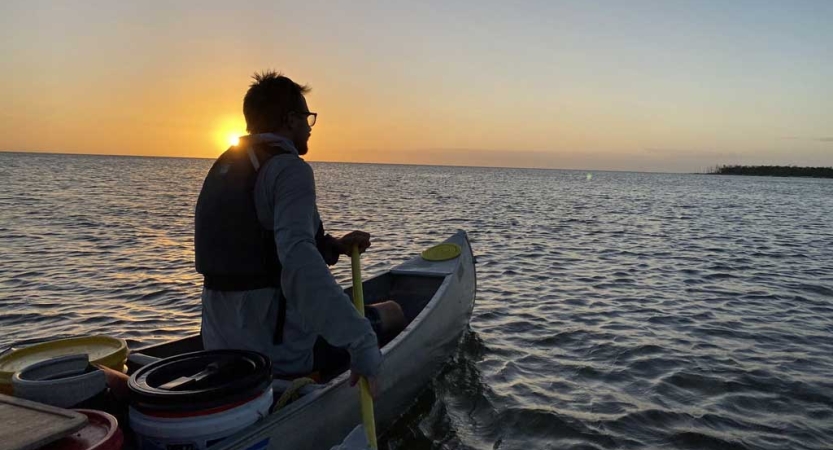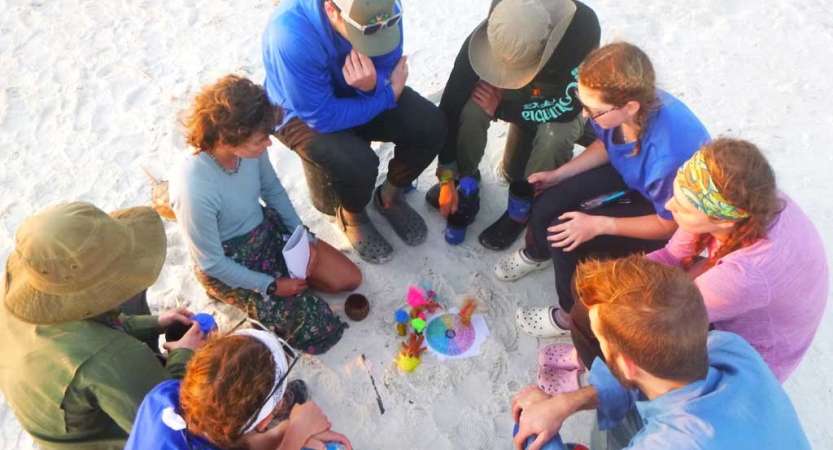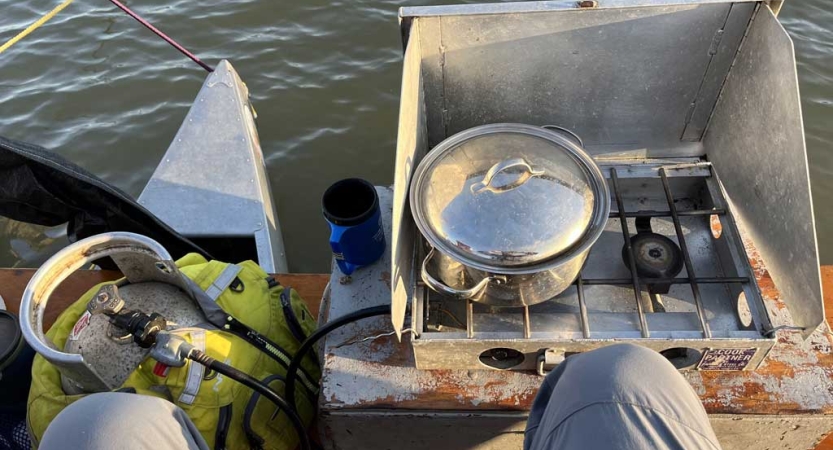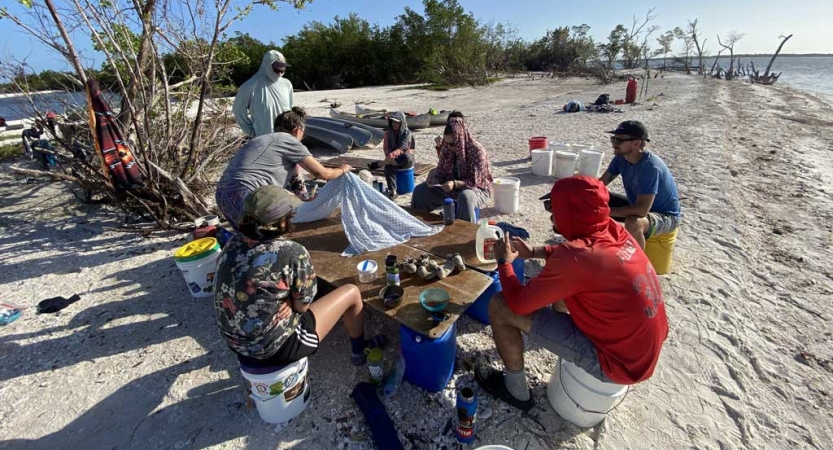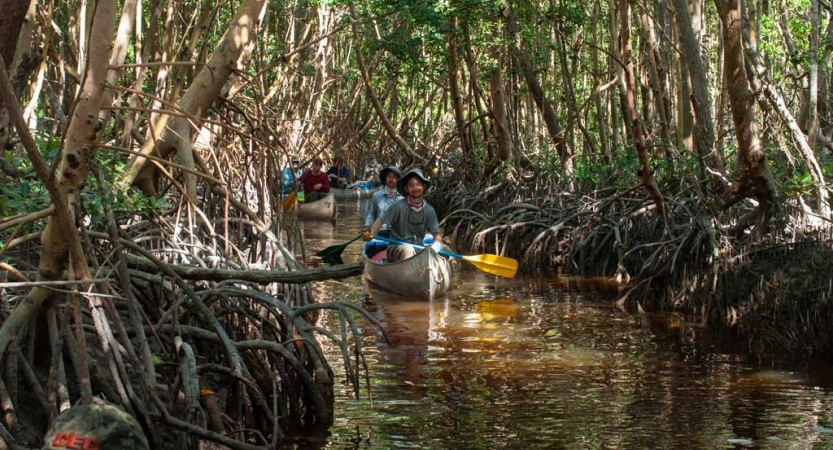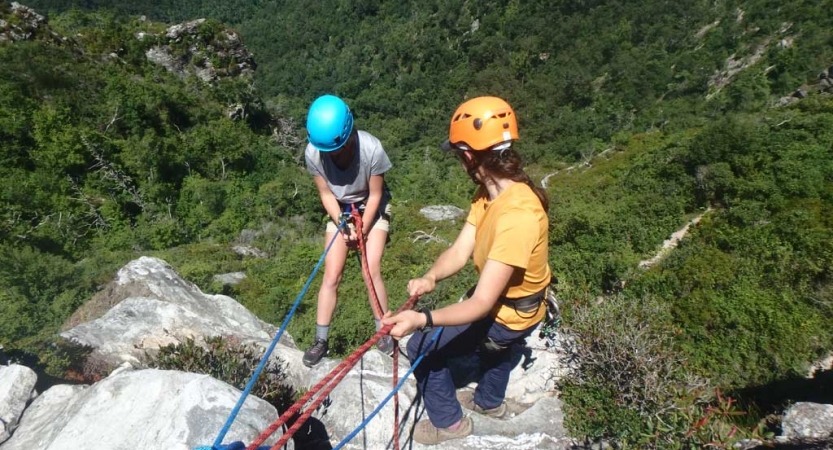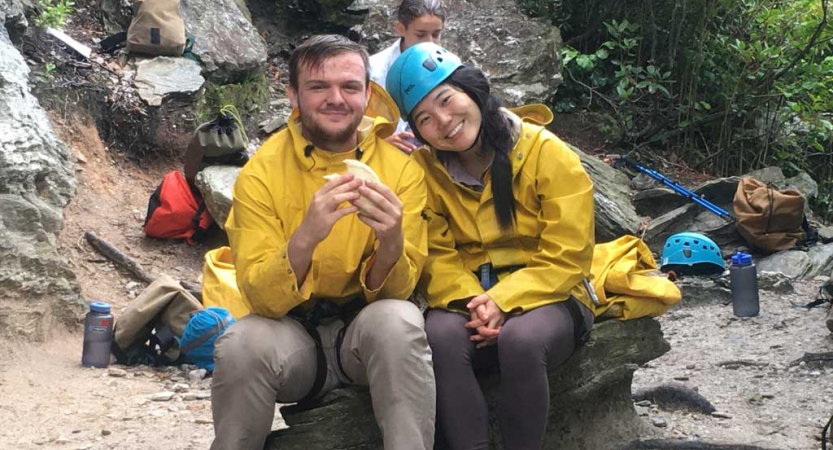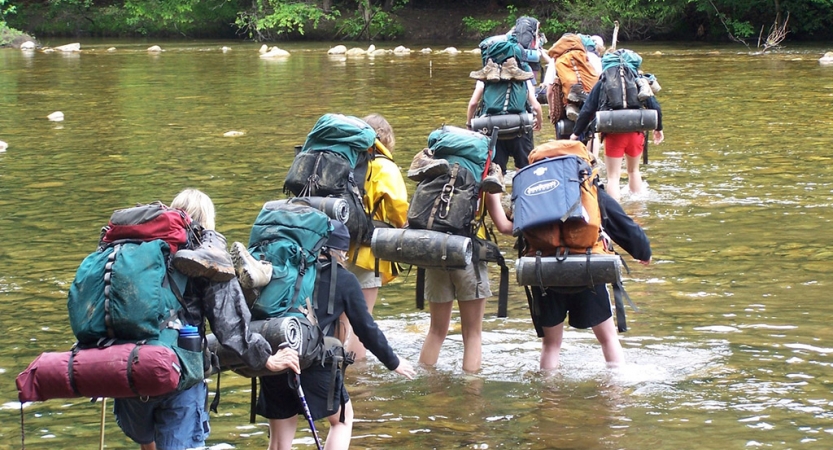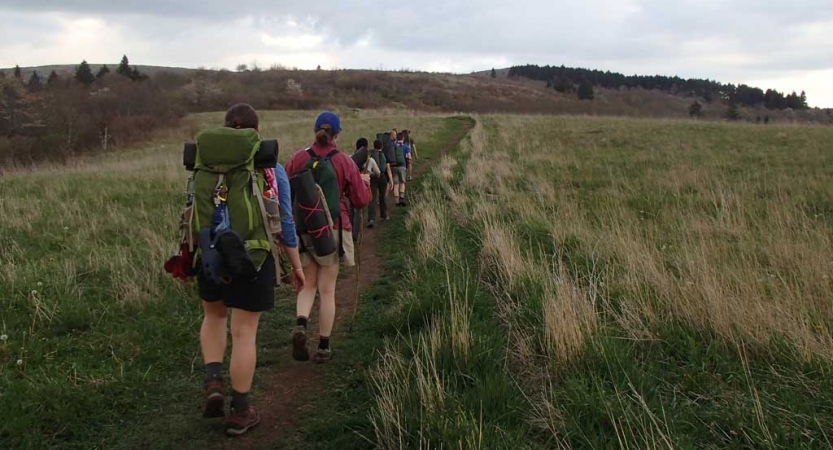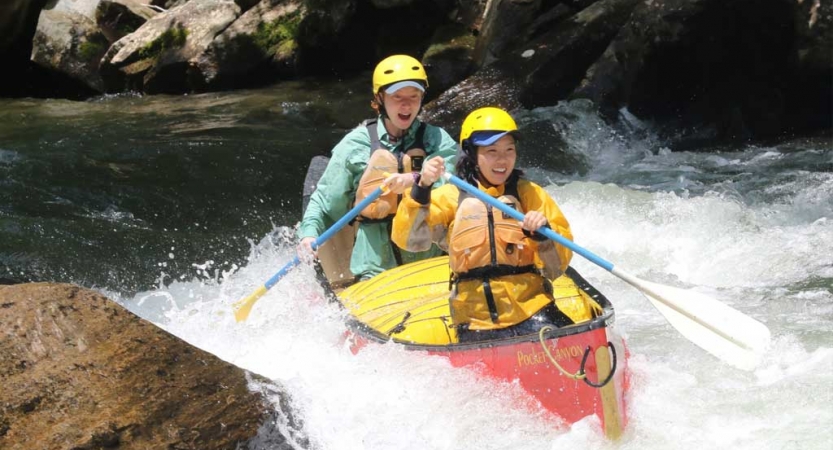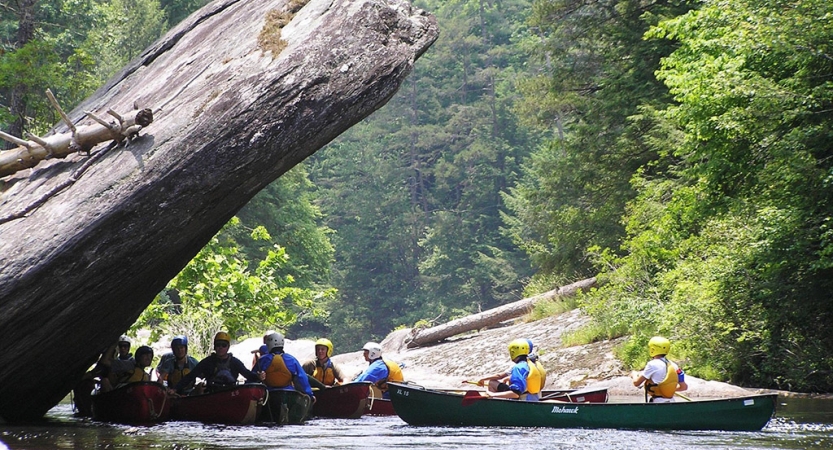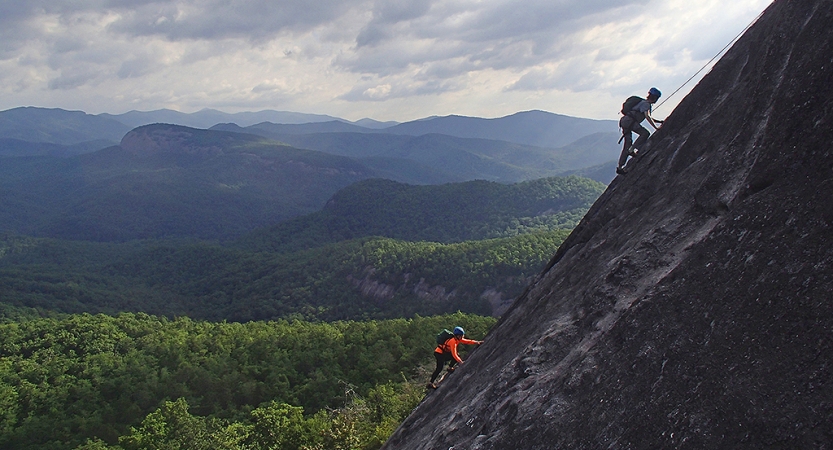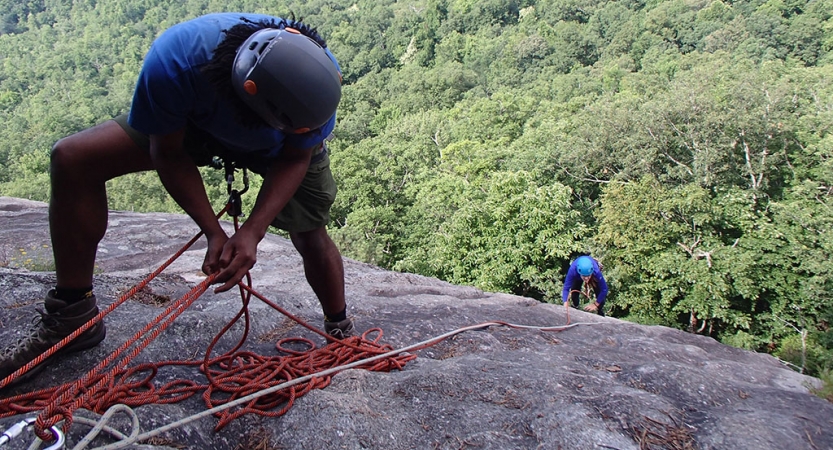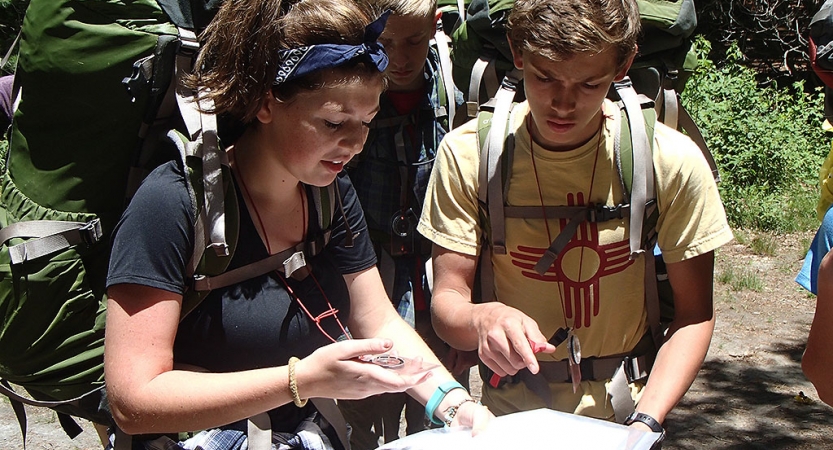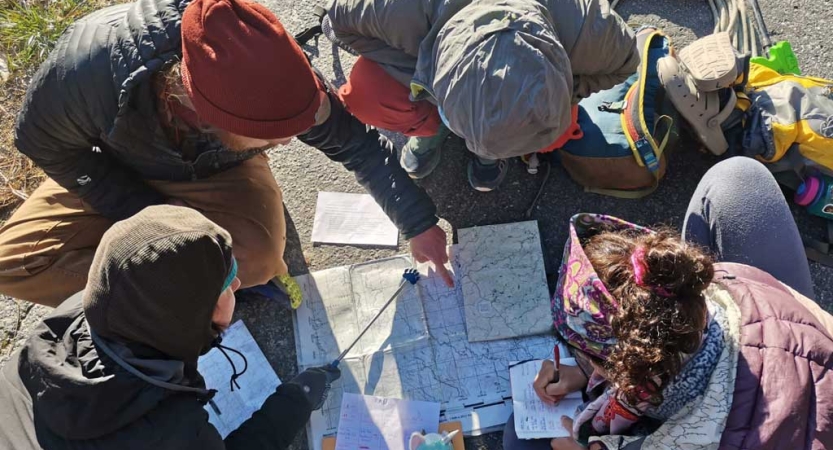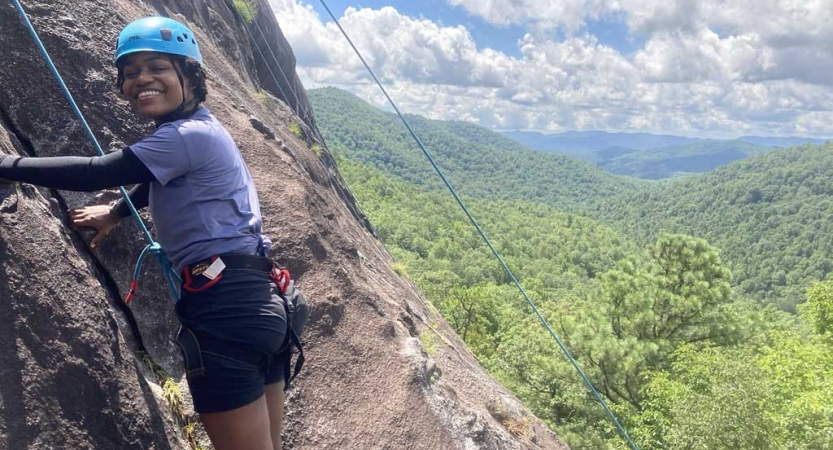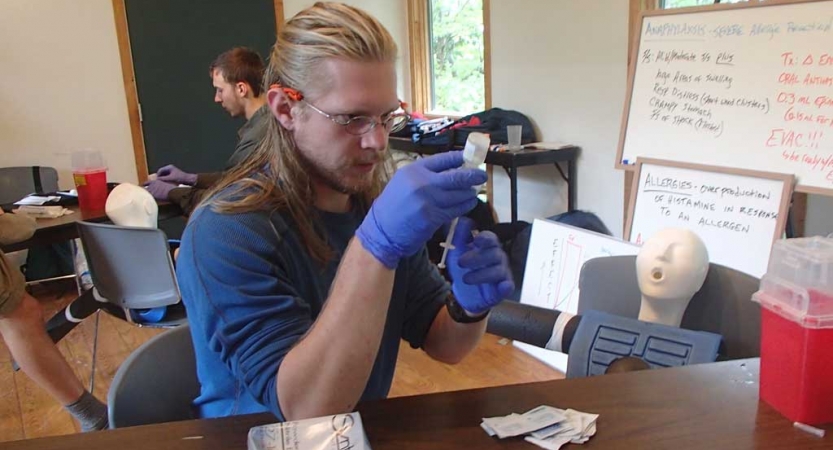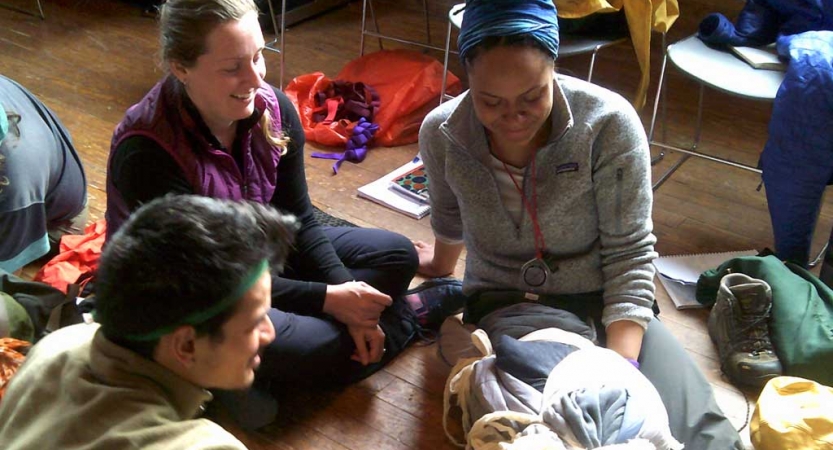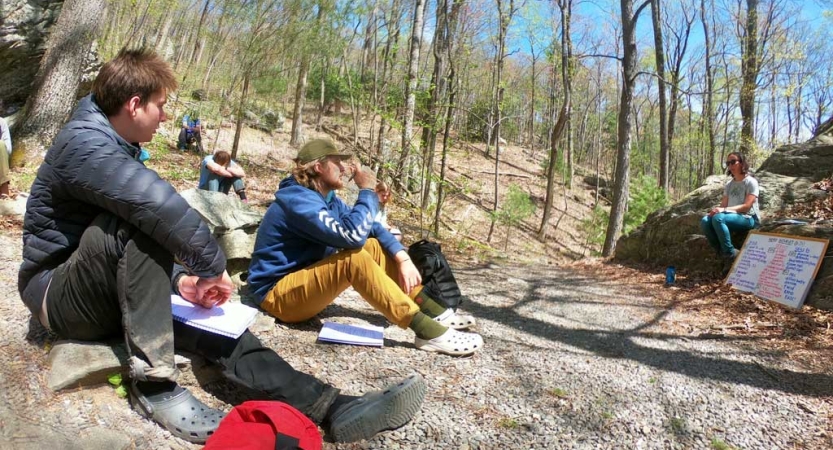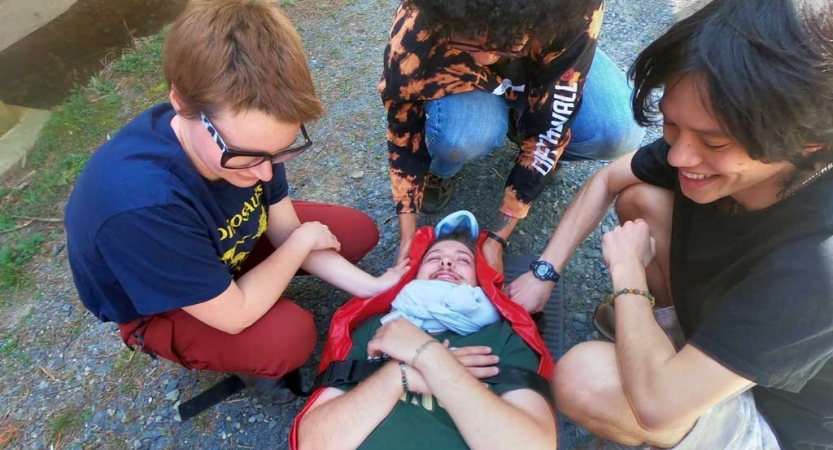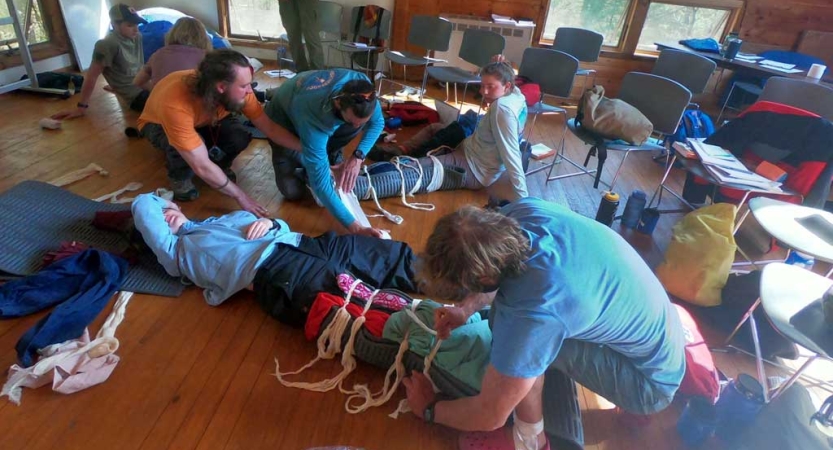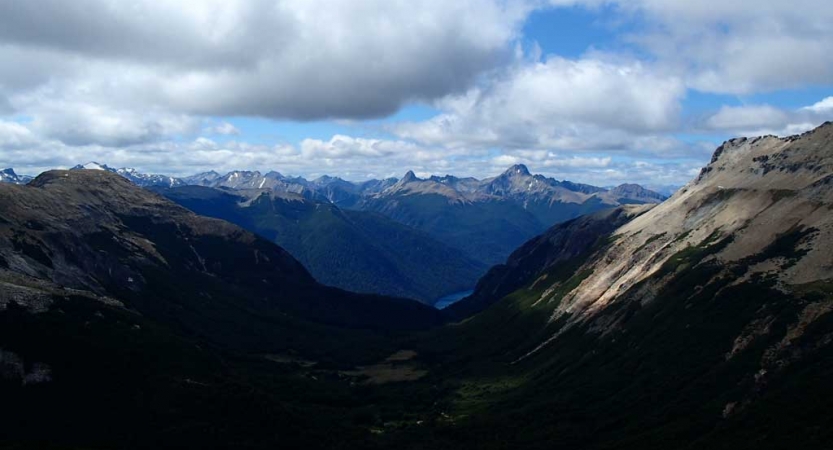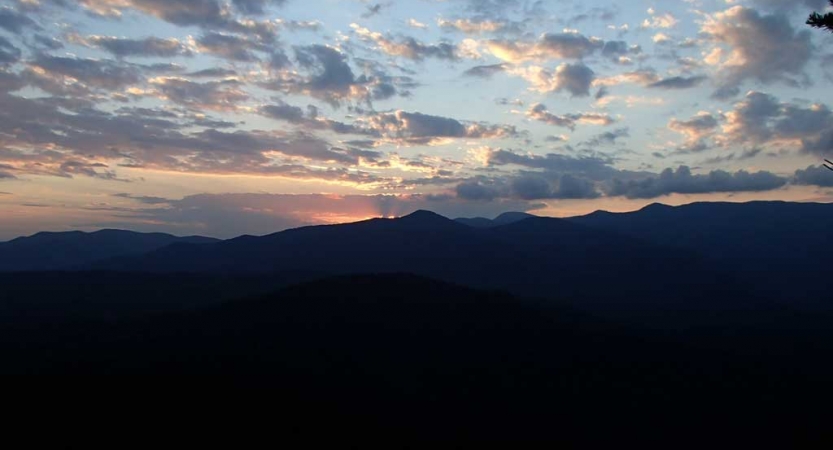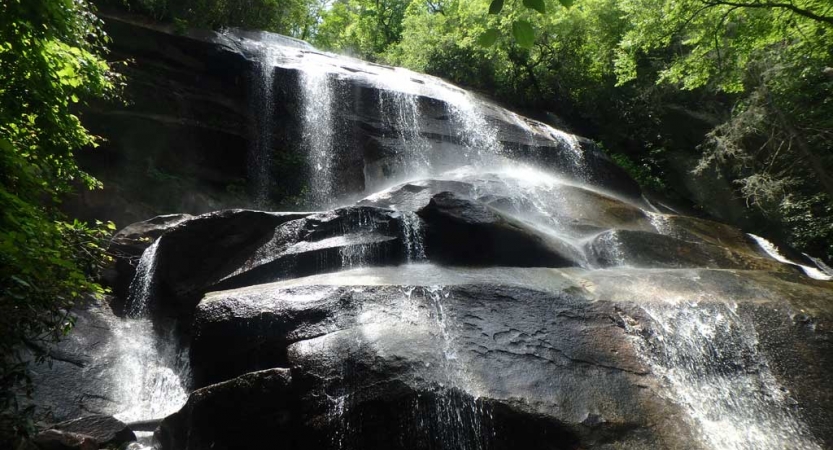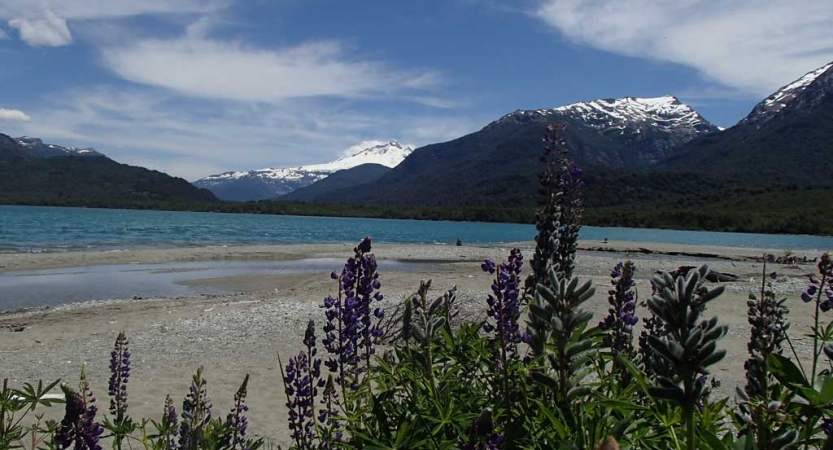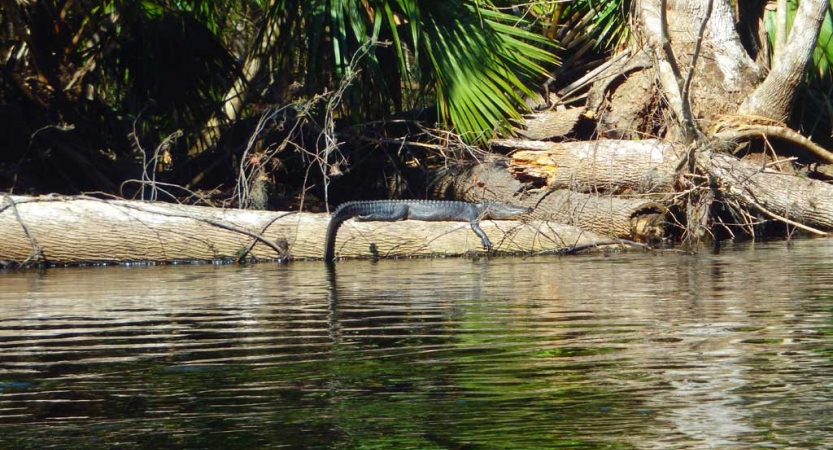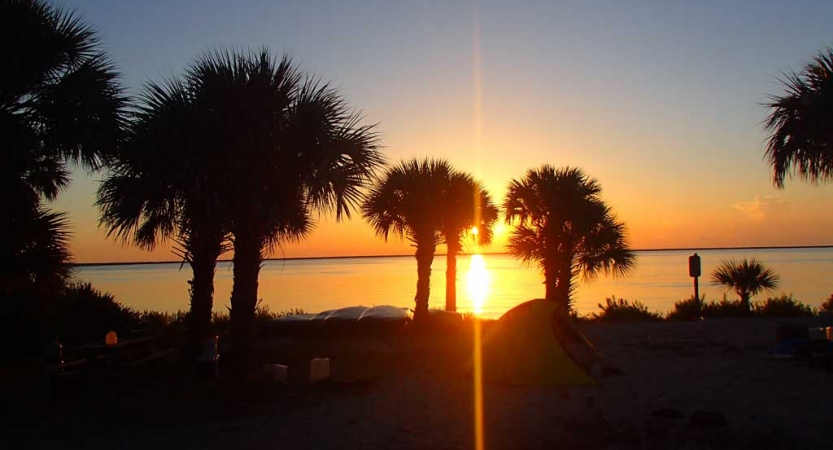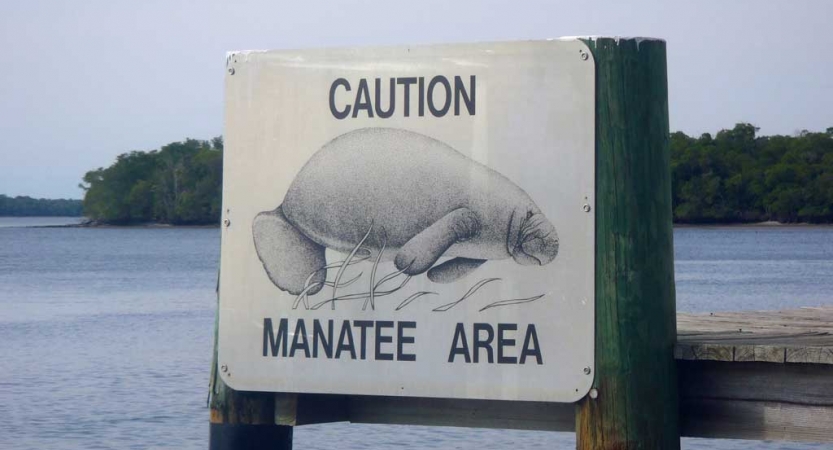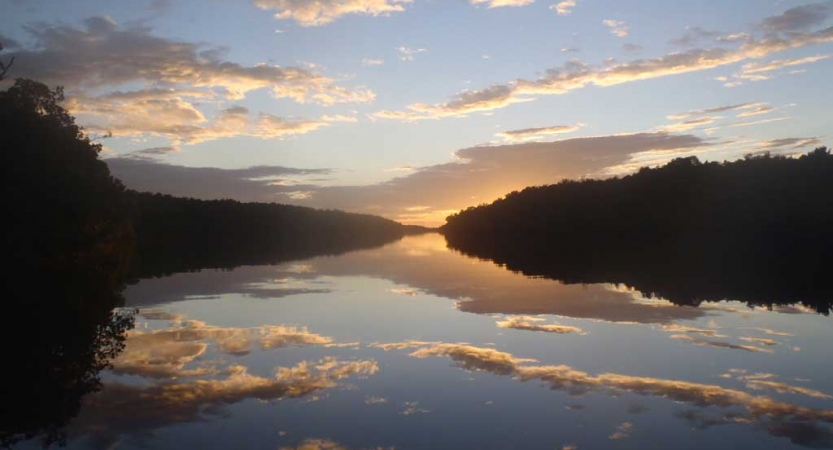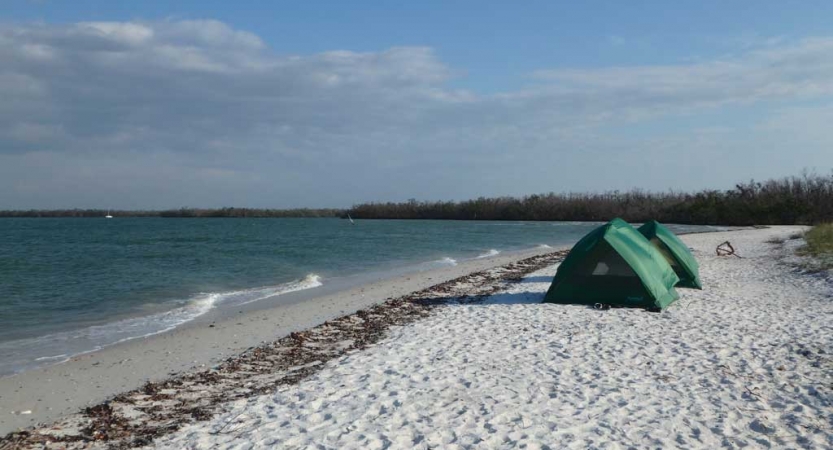-
EXPEDITIONS
-
High Sierra Alpine Backpacking & Rock Climbing
-
Water Gap Canoeing & Leadership for Girls
-
Colorado Rockies Alpine Backpacking
-
Chesapeake Bay Sea Kayaking & Appalachian Backpacking
-
Oregon Rafting & Alpine Backpacking
-
Maine Coast Sailing
-
Southwest Rafting
-
Northwest Sea Kayaking & Backpacking
-
Minnesota Northwoods Weekend Adventure for Adults
-
Yosemite Backpacking for Adults
-
Blue Ridge Mountains Backpacking & Rock Climbing for Women
-
Colorado Rockies Alpine Backpacking & Rock Climbing for Adults
-
Pathfinder Rocky Mountains to Canyonlands
-
Pathfinder Boundary Waters Canoeing & Backpacking
-
Pathfinder Blue Ridge Mountains Backpacking, Whitewater Canoeing & Rock Climbing
-
Pathfinder Southwest Canyoneering & Canoeing
-
Colorado Rockies to Southwest Rivers Leadership Semester
-
Southwest Leadership Semester
-
Blue Ridge Mountains to Florida & Patagonia Leadership Semester
-
Intercept Boundary Waters Canoeing
-
Intercept Boundary Waters Semester
-
Intercept Boundary Waters Canoeing for Girls
-
Intercept Big Bend Semester
-
Blue Ridge Mountains Backpacking & Rock Climbing for Families
-
High Sierra Backpacking & Rock Climbing for Boys
-
Lake Superior Sea Kayaking for Women
-
North Cascades Canoeing & Rock Climbing for Boys
-
Backpacking
-
Canoeing
-
Canyoneering
-
Dog Sledding
-
Mountaineering
-
Rafting
-
Rock Climbing
-
Sailing
-
Sea Kayaking
-
Service
-
Snow and Ice
-
EXPEDITION FINDER
CLASSIC FOR MIDDLE SCHOOL
FEATURED CLASSIC FOR MIDDLE SCHOOL
FEATURED CLASSIC FOR HIGH SCHOOL
FEATURED CLASSIC FOR ADULTS
FEATURED PATHFINDER
FEATURED SEMESTER
FEATURED OUTDOOR EDUCATOR
OUTDOOR EDUCATOR OVERVIEW INTERCEPTFEATURED INTERCEPT
FEATURED AFFINITY GROUPS
FEATURED VETERANS
VETERANS OVERVIEW ACTIVITIESFEATURED ACTIVITIES
FEATURED SCHOLARSHIPS & ACADEMIC CREDIT
SCHOLARSHIPS & ACADEMIC CREDIT OVERVIEW PLANNING COMMUNICABLE DISEASE PRACTICESFEATURED COMMUNICABLE DISEASE PRACTICES

Program Overview
Skills
- Basic First Aid
- Basic Paddle Strokes
- Belaying a Climber
- Campcraft
- Food Preparation and Cooking
- Knots
- Map and Compass
- Natural History
- Navigation
- Rappelling
- River Reading
- Safety and Risk Management
- Self Care
- Wilderness Medicine
- Character
- Communication
- Conflict Resolution
- Empathy
- Independence
- Leadership
- Positive Risk Taking
- Problem Solving
- Resilience
- Self Awareness
- Self Confidence
- Service
Let’s Connect!
Patagonia to Florida & Blue Ridge Mountains Leadership Semester
Embark for the adventure of a lifetime on this 72-day, multi-region, international semester course.
Summit peaks in Patagonia; journey by river through the canopied forests and barrier islands of Florida; and complete the expedition by climbing rock faces and paddling whitewater in the lush, rolling, mountains and valleys of Western North Carolina. This semester course offers the chance to challenge yourself, practice leadership skills and foster a strong sense of personal development.
While living and traveling in the classroom of the great outdoors, gain a clear sense of your abilities, build strong bonds with your group, and walk away with a greater understanding of the wilderness, the world, and yourself. This course is comprised of three phases: Patagonia, Everglades National Park/Ten Thousand Islands National Wildlife Refuge, and the Blue Ridge Mountains. Although semester programs are not traditional academic programs, many colleges recognize the value of gap year courses and grant college credit for them. This course also offers Wilderness First Aid certification and a service project component.
Program Overview
Skills
- Basic First Aid
- Basic Paddle Strokes
- Belaying a Climber
- Campcraft
- Food Preparation and Cooking
- Knots
- Map and Compass
- Natural History
- Navigation
- Rappelling
- River Reading
- Safety and Risk Management
- Self Care
- Wilderness Medicine
- Character
- Communication
- Conflict Resolution
- Empathy
- Independence
- Leadership
- Positive Risk Taking
- Problem Solving
- Resilience
- Self Awareness
- Self Confidence
- Service
UPCOMING COURSES
What is this?
For detailed information on course availability statuses and what they mean, click here.
Course # NPGL-2581
Age 18 and up
Days 72
Cost $18,015
Dates 1/22/2025 - 4/3/2025
APPLY NOW
This means a course has several open spots and is actively processing applications.
What is this?
For detailed information on course availability statuses and what they mean, click here.
Thank you for your interest in Outward Bound!
This course starts within the next week. Please call us at 866-467-7651 to assess the possibility of applying for this course!
APPLY NOW
This means a course has several open spots and is actively processing applications.
APPLY NOW – Almost Full
This means there are three or fewer currently available spots left on a course. To secure your spot click Apply Now to begin an application!
JOIN WAITLIST
Once a course has reached capacity, three waitlist positions become available. To join a course’s waitlist, click “Join Waitlist” to begin the application process. A $500 deposit is required. This $500 deposit includes a $150 non-refundable application fee and a $350 tuition payment. The $350 tuition payment is refundable only if you cancel your waitlist application or if an open position does not become available. If a position does become available, the applicant will be applied to the open position and the Application and Cancellation Policies of the Regional Outward Bound School will be followed, including forfeiture of the $500 deposit if you cancel 90 days or less prior to the course start date.
Waitlist applicants are encouraged to complete all required admissions documents while awaiting an open position. Positions may become available up to two weeks prior to the course start date. Applicants may only apply to one course. We recommend applying to a course with open positions instead of a course that is accepting waitlist applications. If you have questions, please call 866-467-7651 to speak with one of our Admissions Advisors.
CALL TO APPLY
This means a course is very close to its start date. Although it is unlikely to secure a spot this late, you can call the National Admissions office at 866-467-7651 to discuss your options.
COURSE IS FULL
When a course has reached maximum capacity, meaning all spots and the three waitlist spots are occupied, a course will read “Course Is Full.” This means applications are no longer being accepted.
CLOSED
As a course nears its start date, the availability status may read “Closed.” In this event, a course roster has been finalized and applications are no longer being accepted or processed.
This course has given me an idea of who I want to become in life. At the beginning of the expedition I was struggling with pushing myself to do challenging things when I did not believe I had the ability. Now I am confident in my ability to push myself to do great things and reach my potential.
 Most College Savings Plans, including the 529 College Savings Plan, may be used to attend an Outward Bound expedition, thanks to a partnership with Western Colorado University. Anyone can register – you do not have to be a current Western Colorado University student. Registration is easy! Click here to learn more.
Most College Savings Plans, including the 529 College Savings Plan, may be used to attend an Outward Bound expedition, thanks to a partnership with Western Colorado University. Anyone can register – you do not have to be a current Western Colorado University student. Registration is easy! Click here to learn more.
Develop outdoor skills. Enhance your leadership and communication abilities. Strive to increase your knowledge of the environment – all while learning wilderness travel techniques in a variety of stunning environments. The ultimate goal of our Gap Year expeditions is to help you develop the confidence, knowledge, and integrity essential for effective leadership. Whether you are learning how to safely tie in on belay, deciding as a group how to navigate through new terrain, or setting up a minimum-impact campsite for the evening, you’ll be honing and practicing skills for life.
- Build skills, form connections: Amidst rugged natural landscapes, learn to lead and to follow; to give and receive feedback; and to trust in your own capabilities as you expand your technical and personal knowledge base. Find connections with your crewmates based on support and respect (and fun too!), and in the thick of challenges, discover there is more in you than you know.
- Value strengths and strengthen values: Uncover your unique character strengths, exercise your independence as you gain life experience and learn how to let compassion in to everyday life by pushing your own limits and supporting your crew as you tackle obstacles together, big and small.
- Demonstrate mastery: As you gain confidence in new skills and a better understanding of the natural world around you, take on more decision-making responsibilities. Work together to achieve team goals, solve problems and succeed both as independent individuals and as a group.
- What you’ll learn: Examine your personal values and discover more about your true self. Hone your technical abilities as you become a master at ropes courses or swiftwater rescue techniques and Wilderness First Aid. Numerous certificates are available depending on the course, and up to 18 credit hours can be earned along the way.
Exploring new environments and building new connections will put your tenacity to the test. You’ll return with broader understanding of the natural world around you, deeper appreciation for small kindnesses and greater confidence in yourself and others that will serve you well long after you return.
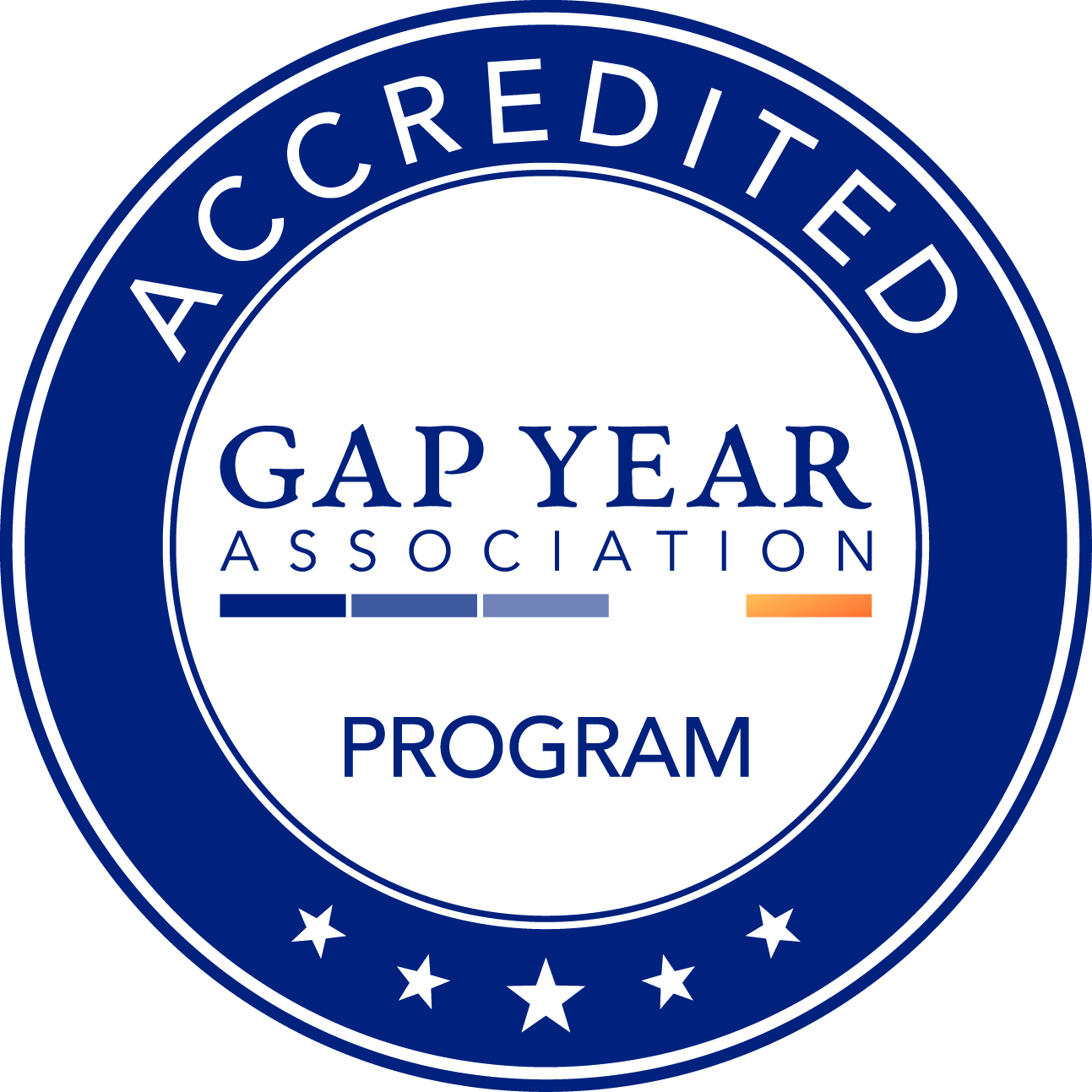
Outward Bound is accredited with the American Gap Association and is the longest running program in this elite group dedicated to providing safe, meaningful and high-caliber educational experiences to students.
During the first phase of this Semester expedition, students get the opportunity to visit one of the least populated and pristine regions in the world. In Nahuel Huapi National Park, students learn the techniques of alpine trekking and perfect their technical skills as they prepare to summit an Andean peak (weather permitting). Patagonia's unique flora and fauna, snow-covered volcanic peaks, ice slopes and unique terrain have attracted many scientific expeditions, including those of Charles Darwin. After extended backcountry living in this unique environment, students will realize and appreciate the connection between teamwork and individual success.
While in Patagonia, students are encouraged to live in the moment and immerse themselves in the culture. Outside of trying new foods and meeting locals, students will practice giving back by completing a service project. This project could include fence building, painting homes, harvesting fruit and building structures with local farmers. Participants can receive service project hours for this course and simply need to alert their Instructors prior to the course start.
After spending the first part of the journey traveling with heavy packs, students welcome the chance to carry their gear for the second phase of the course in a canoe. Students can expect to spend a good deal of time each day in canoes as they go from campsite to campsite, moving through the unique ecosystem of the Everglades National Park and the Ten Thousand Islands off the Gulf Coast. These canoes are tandem, which means the crew works together in teams of two. Depending on the weather, the level of difficulty varies from day to day. Students will learn marine expedition risk assessment and management, marine route planning and navigation, paddle strokes, canoe-based rescues, equipment use, and how to work with a paddling partner.
During the last phase, students will backpack through the plunging valleys and ancient 6,000-foot summits of the Appalachian Range in Western North Carolina. By working together to backpack through temperate rainforests, climb in and around the Linville Gorge and paddle some of the best whitewater in the southeast, students step outside their comfort zones and learn to communicate with and trust their new crewmates.
The rock climbing portion of this phase focuses on safety, as students begin with the basics; tying knots, safety systems, belaying, and climbing techniques. Depending on group dynamics and weather, the goal is to achieve top-rope climbs and progress to a multi-pitch route led by a climbing specialist. There is also the chance to experience a rappel and the high ropes course.
Participants will also spend up to four days paddling Class I-Class III whitewater through sculpted rock channels in tandem (two-person) canoes. Crews learn how to identify and use paddling equipment, basic water safety, and rescue techniques, paddling strokes and how to work with their partner to successfully paddle flat water and negotiate numerous rapids and drops.
While in the Blue Ridge Mountains, participants can prepare for the unexpected by earning a Wilderness First Aid (WFA) certification during the mountains phase of the course. This fast-paced, hands-on training teaches skills to care for those who become ill or injured far from definitive medical care. Offered through a partnership with Landmark Learning, an accredited organization, this certification will include classroom lectures and demonstrations combined with realistic scenarios where mock patients will challenge participants to use what they've learned. After completing the WFA and CPR components, students can apply for academic credit for this certification.
For profound learning to take place, there must be time to reflect on the experience. Solo is that opportunity, and that time can range anywhere from 30 minutes to 24 hours. It is a chance to experience solitude in the wilderness without distraction while also taking a break from the physical rigors of activities. Students experience short periods away from their group throughout the course for reflection. These “mini-Solos” are at Solo sites chosen by Instructors to provide as much solitude as possible (within emergency whistle-signaling distance of other group members). Participants have all the necessary equipment, food, and water during their Solo time, and safety is always the top priority.
Outward Bound courses vary in length from four 4 to 85 days. On shorter courses, participants will receive an introduction to leadership skills, strength of character, and a desire to serve while activities fill most of the time and the pace is quick. With longer courses, the same outcomes and benefits are achieved with the opportunity to reach a more profound level of mastery as there are more chances to develop technical skills, receive and implement feedback, and further personal development. However many days the expedition lasts, the strength and impact of the experience last a lifetime.
Rock climbing, canoeing, and wilderness navigation techniques are great practice for the essential skills and habits that help prepare for new challenges at school, work, home, and in the community. Outward Bound expeditions encourage students:
- to remain engaged and present, giving every challenge the best effort, even when the goal seems beyond reach.
- to form a team and focus on the team effort.
- to share responsibilities, communicate, and lead. Leadership roles are shared within the group, and responsibilities rotate each day.
- to find reserves of tenacity and compassion. Outward Bound courses are designed to expand and stretch your limits so that every expedition is a true accomplishment and a memorable journey.
Patagonia, South America
In southern South America lies a land untouched, growing wild and rugged. As one of the least populated regions in the world, Patagonia is a semi-arid plateau that covers over 250,000 square miles mainly in Argentina. This remote wilderness boasts dramatic landscapes and is famed for its adventures and adventurers. From its isolated mountain valleys and snow-clad volcanic peaks to its glaciers and waterfalls, Patagonia has few equals in lands of exploration. Students visit the city of Bariloche (population 108,205), which is situated in the foothills of the Andes on the southern shores of Nahuel Huapi Lake and is surrounded by the Nahuel Huapi National Park. Established in 1934 to preserve local flora and fauna, it is the oldest national park in Argentina and the largest in the region with an area of nearly 2 million acres. These regions are the ancestral lands of the Mapuche and Tehuelche nations.
Florida Everglades and Ten Thousand Islands
The Florida Everglades are the largest subtropical wilderness in the United States and the third-largest national park in the lower 48 states. The aquatic preserve is home to various wild creatures and exotic plant life. More than 350 species of birds, 300 species of fresh and saltwater fish, 40 species of mammals, and 50 reptile species live within it. Because of this, it is one of only three locations in the world to show up on the following lists, an International Biosphere Reserve, a Wetland of International Importance, and a World Heritage Site.
The Everglades are mild and pleasant from December through April, with low humidity and clear skies. Temperatures reach average highs of 88 degrees and lows of 54 degrees. Strong cold fronts may occasionally create near-freezing conditions, but such events are rare in this subtropical climate. These regions are the ancestral lands of the Calusa, Miccosukee, and Seminole nations.
Blue Ridge Mountains, NC
The Blue Ridge Mountains, or Southern Appalachians, is one of the oldest mountain ranges in the world. While the mountains formed over 250 million years ago, some rocks underlying the region are over a billion years old. The Southern Appalachians' long geologic and evolutionary history has created one of North America's most biologically diverse regions. Some even say it is “rainforest-like.”
This region is home to beautiful rushing rivers, hundreds of waterfalls, and some of the highest peaks in the Eastern United States—including Mt. Mitchell (elevation 6,684 feet), the highest point east of the Mississippi River. Its diverse landscapes have been featured in many motion pictures, including The Hunger Games and The Last of the Mohicans.
Outward Bound students can expect to share the wilderness with over 700 kinds of trees, more than 50 types of mammals, 150 different types of birds, and over 50 species of amphibians. The huge numbers of trees and plants give these mountains their namesake. Trees put the ‘blue’ in the Blue Ridge Mountains from the organic chemicals they release into the atmosphere, thereby contributing to the distinctive color of these mountains. Temperatures in this area range from 50 to 85 degrees in the summer, 30 to 65 degrees in the spring and fall, and 10 to 50 degrees in the winter. These regions are the ancestral lands of the Cherokee.
Course Stories
This course has given me an idea of who I want to become in life. At the beginning of the expedition I was struggling with pushing myself to do challenging things when I did not believe I had the ability. Now I am confident in my ability to push myself to do great things and reach my potential.
OTHER COURSES YOU MAY LIKE


Costa Rica Leadership Semester
Courses: 1 date available Ages: 18+ Length: 55 Days Cost: $15,700 Details & Dates

Blue Ridge Mountains to Florida & Pata...
Courses: 1 date available Ages: 18+ Length: 72 Days Cost: $18,015 Details & Dates

Southwest Leadership Semester
Courses: 2 dates available Ages: 18+ Length: 55 Days Cost: $11,685 Details & Dates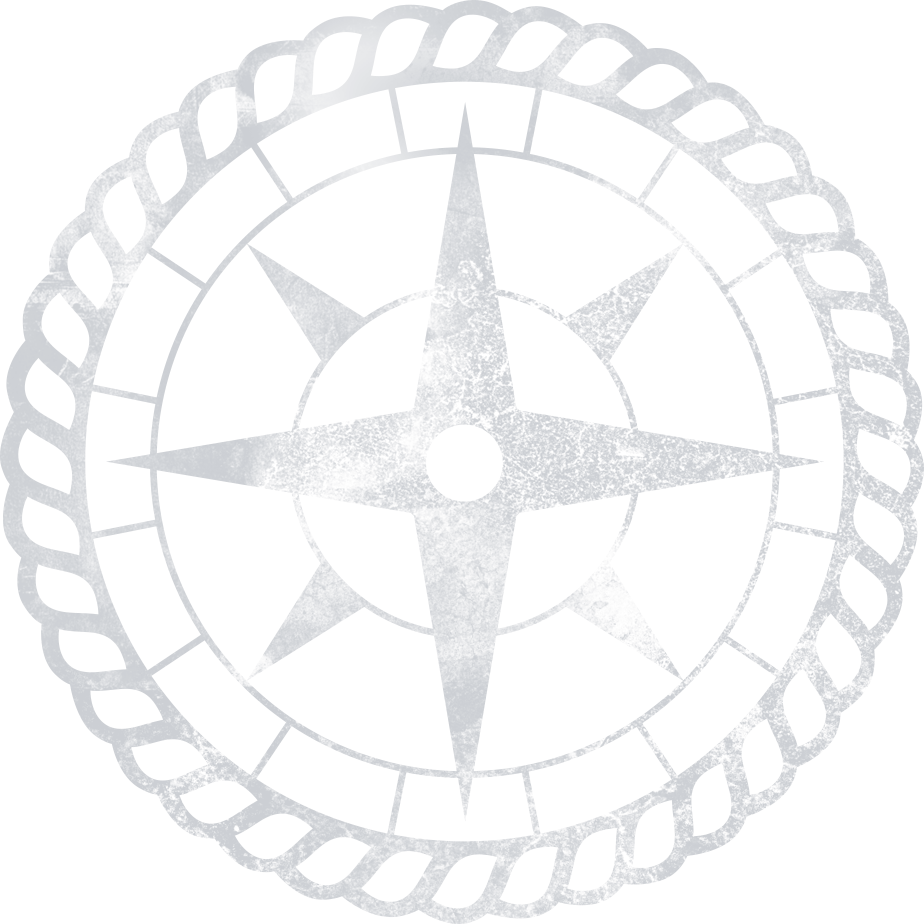
Getting Started
If you are ready to enroll on a course click the enroll button next to the course you wish to select or you can enroll over the phone by speaking with one of our Admissions Advisors (toll-free) at 866-467-7651.
To secure your spot on a course you must submit an enrollment form and $500 deposit that is applied toward the total cost of the course and includes a $150 non-refundable enrollment processing fee.


